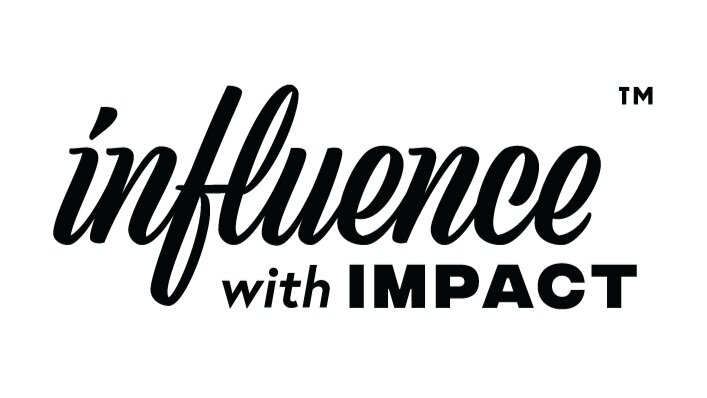The Financial Checklist for Influencers, Content Creators & Creative Freelancers
Disclaimer: This is not legal or financial advisory, all content in this blog post is for educational purposes. If you are not certain about something, please ensure you consult with the right certified advisor.
Whether you’re a creative doing their own thing or a social media influencer making content for some of your favorite brands, there is nothing more satisfying than seeing that solo-employed paycheck hitting your bank account for work you did as your own business owner. Because, yep, that’s what you are as an influencer and content creator — a business owner!
When it comes to doing business, one thing that’s critical for long-term success is setting up your finances in a place to help you continue to smoothly receive income and sustain the business so all you have to focus on is…doing the stuff you love.
At every stage of your growing business, a few things may come up on the money and finances conversation so take this guide as a place to self-audit and ask yourself: “am I on the right track?”
For the Newbie: you just started your business of content creation, influencing and all things creative freelance work. You’re not quite sure how far you want to take it, but you just have a taste of what it’s like to do this type of work.
Have you calculated your base rate?
Considering all the common factors that come to play in your line of work, it’s smart to have an internal list of base rates for different type of work. What will you charge for this number of posts on this platform? What would you charge hourly for your time? Etc.
If you’re an influencer, I have this free and handy influencer rate calculator you can use to figure out what elements to consider when pricing out a paid partnership campaign.
Where will you be bookkeeping?
The moment you make a single dollar is the moment you are liable to paying taxes to the your local government. In the U.S., the IRS has a tax code (6001 if anyone’s asking) that legally requires you to keep records of all your transactions and statements related to your tax liability.
Translation, you’ve got to have every dollar earned and every dollar spent in your business logged.
When you’re just getting started, it may be easiest to start with something free like a Google Sheet. With something like this, you can likely only handle less than 10 expenses per month before it gets too messy. I made a template for that in this link.
One thing to pause and understand here are the definitions for what actually counts as a business expense. A business expense reduces your tax liability (aka: the amount of money “earned” is less on paper). But for it to actually count it has to be both ordinary & necessary.
It can be as obvious as the equipment you purchased to create content and produce work, and something as not-obvious, yet still important, as taking care of your physical appearance if you’re someone who is frequently on-camera.
Prepare your invoice template and solution
Well, you’ve got to get paid right? And a crucial element of sending you payment is ensuring your clients get an invoice that outlines your information, the client information, project details, payment amount, and how they should pay you.
That’s where Lumanu steps in. They simplify how creators do business, and with their invoicing solution you can ensure your brand partners get everything they need to actually pay you. You can sign-up here with this link. What’s nice is you can select the best methods of payment that you’re most comfortable with — like money right in your bank account!
For the Side Hustler: you’re balancing some other full-time job or business at the same time that your business of content creation is ramping up. Now we start looking at a few extra things.
Are you set up as a formal business entity?
While this isn’t required to start earning an income, it’s a great thing to consider when you are working regularly in a new trade (like creating content). The IRS also does not formally require that your business is registered in any way, but some formalization of your business will help define it as a BUSINESS vs. HOBBY in the case you’re ever audited.
Look into LLCs, S-corps and even starting with a DBA (“doing business as”) as a way to start formalizing your business. Something as easy as purchasing the website domain for your business name can be a great head start.
Open a business checking account & start making quarterly tax payments
Having a business checking account is a great way to start separating your expenses and more formally receive and spend money in your business. Aside from supporting you in your taxes, it’s a mental shift that will help you start taking your business to the next level. Bonus points: pay yourself and watch those money fears of “not having a regular income” start to chip away!
If you’re making more significant income at this point, it’s a great idea to make quarterly tax estimate payments to ensure you’re not surprised with a big lump sum at the end of the year.
For the Full-time Creative: that’s it — this is all you do for all (or at least a majority) of your income!
Systems upgrades, new team members & giving yourself a raise
At this stage of being a full-time business owner in the business of content creation, it means it’s time to invest in that paid tool or automation to help ensure your finances are handled. In fact, you may even want to consider hiring a team member to support you in this.
Lumanu will also soon offer an “Earlypay” tool that enables you to get paid earlier for your invoiced work so that you can get that money faster, which is a huge bonus when this is the only paycheck you’re expecting to receive. You can sign-up for the waitlist here and get early access with code: LissetteCalv
And while we’re at it, time to re-evaluate your rates and give yourself a hard-earned raise!
Consider new revenue streams
With all the work you’ve done until now, you’re probably freeing up more time to consider new revenue streams in the business of content creation. Working with brands exclusively? Why not add a digital product or course. How about consulting?
With the right financial checkpoints passed and systems in place, you’re on the way to growing a bigger and more sustainable business.
Eager for more? My friends at Lumanu put together this FREE guide for managing the business of creation — with insights on everything from pricing, pitching brands, taxes, invoicing and more.
Now tell me: what part of the journey are you in?!

